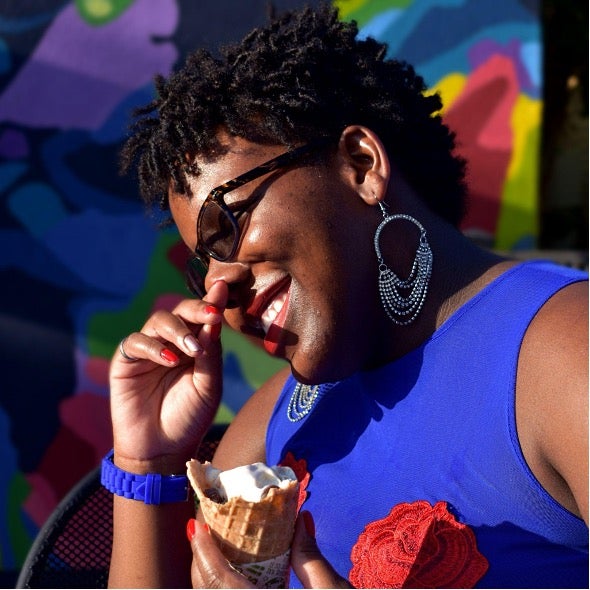Photo Credit: Jacar Baldwin (a Rice alumnus) --> IG @lifeby_jayb
I recently wrote a personal statement for an application to a workshop for women seeking faculty jobs. The only guidance given: “Professional goals and motivation for pursuing them (max 1 page)”
First thought: “well that’s vague…”
Second thought: “OOP, we can make this spicyy!”
Though most of our writing as academics are written to disseminate information to the masses and are therefore restricted in dialect, jargon, definitions, syntax, etc., this does not hold true for personal statements! I view personal statements as personal above all else. Stick to the prompt and guidance, but you have the ability to really show your inner self in these documents!
So here’s some tips to let your inner personality shine in a personal statement.
1) Plan it out.
The guidance given should be the main goal of your personal statement. Write out what are the main points you want to highlight to reach that goal. So for the guidance earlier (professional goals and motivation for pursuing them), some bullet points I wrote were:
- Professional goals
- Themes I may like
- Accomplishments to incorporate
From these bullet points, you can brainstorm ideas in each category in the form of words, phrases, or whole blurbs. Make sure the wording you use triggers stories inside your mind - it doesn’t have to make sense to anyone else.
After you’ve gotten some ideas onto paper, create a potential structure based on your brainstorming session.
In summary: to plan it out is to acknowledge the guidance, brainstorm aspects of your life that match the guidance, and make a structure based on these ideas.
2) Write it out.
This is my favorite part!! I do not like to write, but I do LOVE to talk. My “write it out” is other’s “just get words on the page.” This is for you to get ideas onto a document in a way that is the truest to yourself. The sentences, paragraphs, and word choices, are all starting points - therefore, there is no need to be perfect or even presentable!
Example from my first draft: “Bro, it is hard to have to always code switch with folk.”
There will be blue, red, gray, all-the-colors-of-the-rainbow squiggles under your words from the program trying to conform your words into societal expectations. That is okay. Ignore them for now and keep writing.
I consider my first few drafts to fall within this category, not necessarily presentable but a good starting point to look back at it while writing later drafts.
3) Clean it up.
This is what people tend to write for initially: making a draft you wouldn’t shy away from showing to your advisor. In my opinion, this is for later iterations only. Starting from a free-form of expression helps to make sure these edits still hold your personality. This is the time to make your words “acceptable” for the program you are applying to.
Continued example from part 2, basically how that sentence transformed in later drafts: “My academic prowess is a testimony that the words and grammatical choices any person uses to portray an idea are indicative of culture, not their knowledge or capabilities. So… what it do?”
Spicy right?? But professional… ish.
If I hadn’t written it out as if I was speaking to a friend first, this idea wouldn’t have come through the same way. Seeing what you really want to say allows for you to keep the essence of your personality when you write it to be presented. Clean it up without throwing those original ideas away!
4) Serve it up.
This is revisement outside of your own view. This statement should go through multiple people whose opinions you value. If you’re not comfortable sharing it with someone close to you, then you may not be comfortable sharing that information with strangers judging the applications for the program you’re applying to. Someone has to read it, so let it be the people who know you best first.
Keep every draft you make and give your revisers a draft they can mark up with suggestions and edits. Have conversations about what they think and if they believe it matches the guidance you were given/program you’re applying for. You do not have to take their edits as necessary changes, if it does not match your truth then you can ignore it! It’s a suggestion above anything.
Reiterate this process until you are confident in your submission. Voila! It’s time to submit!!
I’m wishing you the best of luck!
I wish you the best of luck in using your personal statement as a form of self-expression in the rigid confines often defined by academia. If they don’t accept your personality as is, it is possible that it wasn’t an opportunity that would have uplifted you mentally - only professionally. I’m a strong proponent of taking care of yourself first, so brush your shoulders off and try for something else that fits you better! May your self-expression give you the confidence that “what is for you, is for you.”
About the author:
Daziyah Sullivan is from Jacksonville, FL and is a current Ph.D. student in Mechanical Engineering. She got her B.S. in Mechanical Engineering at Florida Agricultural & Mechanical University. Read more.
Further Reading:
Why I Chose Rice for Graduate School:
Preparing for and Giving a Presentation at My First BIG Conference (BMES)

